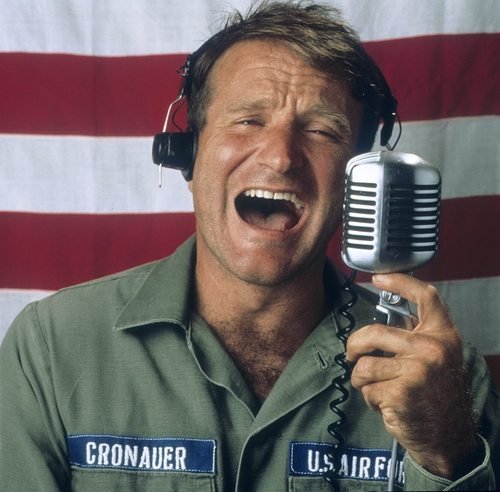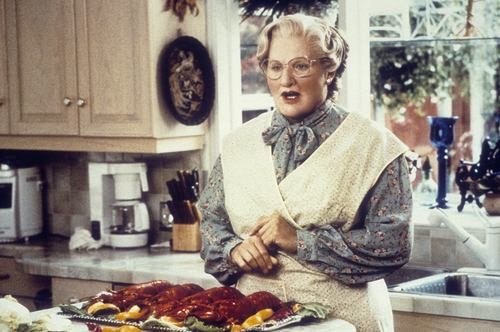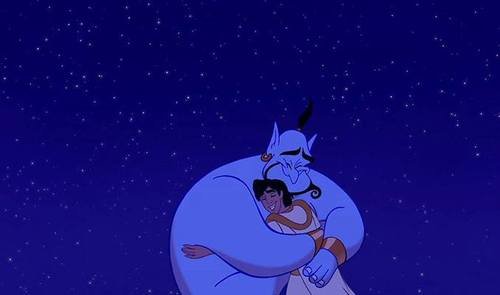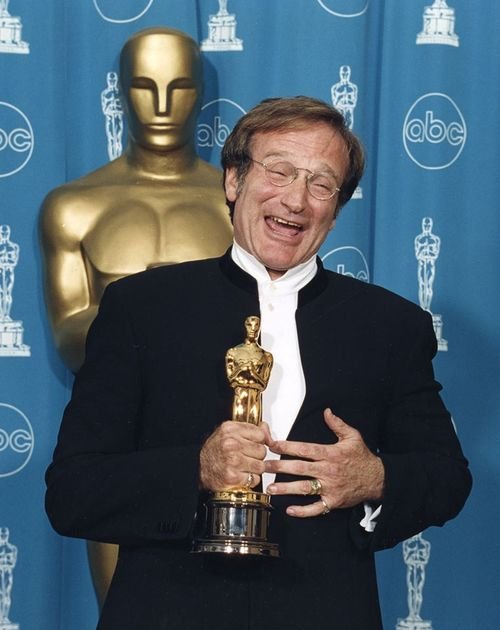2 years ago Robin Williams passed away and the world lost a phenomenal talent. I wrote this piece back then to explain my personal connection to the man.

The recent passing of great comedian, entertainer and talented actor Robin Williams is undoubtedly a tragedy and a significant loss, not only to those close to him (friends, family, colleagues) but also to those he would have never met across the globe who felt a distinct connection to him due to a string of phenomenal performances in films that not only shaped their childhoods, but also shaped them as people and how they choose to approach various problems today. You see, film is powerful like that, and it can take something as simple as a well directed scene, piece of dialogue or portrayed emotion on screen to really resonate with the viewer in a way that no other form of art can.
Of course, he helped people in many ways that he would have never been aware of, and with details still emerging of the cause of his death that seem to point it in the direction of suicide, it’s heart wrenching to think that the depression he must have been suffering could not be alleviated in a similar manner. Unfortunately, some pockets of society continue to approach depression in a way that condemns it as ‘not a real illness’, which is both ignorant and also very sad. It’s understandable that those without the knowledge of depression or have not experienced it themselves, either personally or through a love one, may find it hard to comprehend that a multi-millionaire celebrity who is universally loved may have felt like that. We live in a world where it can be often thought that money will solve all of our problems and ailments, and I’ve often heard a version of this comment spoke aloud – ‘I can’t wait to be rich so I can be happy.’ That’s quite a terrifying thing to consider, that some believe they can be happy when they have a mansion, a speedboat and mountains of expendable income. Happiness just doesn’t work that way.

Those around Robin may feel helpless and even guilty, but they have to understand that what has happened isn’t their fault. It’s nobody’s fault. Some will have the audacity to point the finger at Robin and accuse him of being selfish, taking the ‘cowardly’ way out when he had his children to think about, but that is completely ridiculous. We can only venture a guess as to the ferocity of the demons he had. Robin may have felt alone, even if he wasn’t, and he may have felt as though taking his own life was the only way he could end a suffering that only he truly understood, no matter how many friends, relatives or professionals he spoke to. For such a talent to be gone in such a heartbreaking manner is hard to come to terms with, even though I didn’t know the man in any way other than how he appeared on television and the big screen. He must have found some solace in comedy but in the end it just wasn’t enough. Hopefully there can be some good to come from his passing, and that would be in making those who suffer with depression realise that it can happen to absolutely anybody.
I will always be grateful to him for helping me understand a situation I found myself in more than once, and it was Robin’s turn in a family comedy that was so beneficial to me. In 1993’s family comedy ‘Mrs. Doubtfire’, Robin played eccentric actor Daniel Hillard who struggles through a divorce and finds difficulty in seeing his children as his ex-wife wins full custody of them. Daniel plots an elaborate scheme where he uses his talents as an actor to dress up as an elderly Scottish nanny and see them regularly, learning a lot about himself and parenting in the process. It’s a heartwarming family comedy with some more dramatic moments, but overall it’s a very established commentary on modern families and how the break-down of one can effect everybody involved, especially children, who are more susceptible to feeling vulnerable when a split happens, even blaming themselves in some way just to try and come to terms with why it has happened.

10 years ago, my parents split up after a difficult marriage that my younger sister and me witnessed what often felt like way too closely. Once they separated, it was relief rather than grief that we felt, knowing that it would be for the best (for all of us) and that we could now all focus on being happy without having to keep up the discernable façade of a family unit. It worked out for the best, and each of us have a better relationship with the other due to the way everything turned out. We were very lucky.
6 years after that I experienced something very similar, but this time I was the Dad in the situation. With the birth of my daughter, Megan, imminent, her mother and me decided to split due to a variety of reasons. Since then, and for the last 4 years, I have been a constant part of Megan’s life, and seeing her grow into an intelligent and inquisitive little girl has been overwhelming wonderful, but I know that one day she will have questions about what happened before she was born.

There’s a scene in ‘Mrs. Doubfire’ where a young girl writes into the fictional agony aunt’s television show and Robin Williams, beneath a considerable amount of make-up and greying wig, reads out the letter on air and delivers a response of such magnitude that even as a child I felt a lump grow in my throat and knew that it would stay with me forever.
“Dear Mrs. Doubtfire. Two months ago, my Mom and Dad decided to separate. Now they live in different houses. My brother Andrew says that we aren’t to be a family anymore. Is this true? Did I lose my family? Is there anything I can do to get my parents back together? Sincerely, Katie McCormick.”
Oh, my dear Katie. You know, some parents, when they’re angry, they get along much better when they don’t live together. They don’t fight all the time, and they can become better people, and much better Mummies and Daddies for you. And sometimes they get back together. And sometimes they don’t, dear. And if they don’t, don’t blame yourself. Just because they don’t love each other anymore, doesn’t mean that they don’t love you. There are all sorts of different families, Katie. Some families have one Mommy; some families have one Daddy, or two families. And some children live with their Uncle or Aunt. Some live with their Grandparents, and some children live with foster parents. And some live in separate homes, in separate neighbourhoods, in different areas of the country – and they may not see each other for days, or weeks, months - even years at a time. But if there’s love, dear, those are the ties that bind, and you’ll have a family in your heart, forever. All my love to you, poppet, you’re going to be all right.
I know that when there comes a time that my daughter, Megan, asks me about family, and in particularly why her mother and me don’t live together, I’ll probably need Robin to explain with me, because if it helped me understand, then I’m sure it will help her.
I’ll always be thankful for that, Robin. You did a lot of good during your time on this Earth and you’ll be missed by many.
Rest in Peace Robin Williams, 1951-2014.
Ben Errington
Check out www.hawkandcleaver.com and grab a FREE book while you're there.
Cool, huh?!
FOLLOW ME ON TWITTER - www.twitter.com/ben_errington
LIKE MY AUTHOR PAGE ON FACEBOOK - www.facebook.com/benerringtonwriter
Thanks!